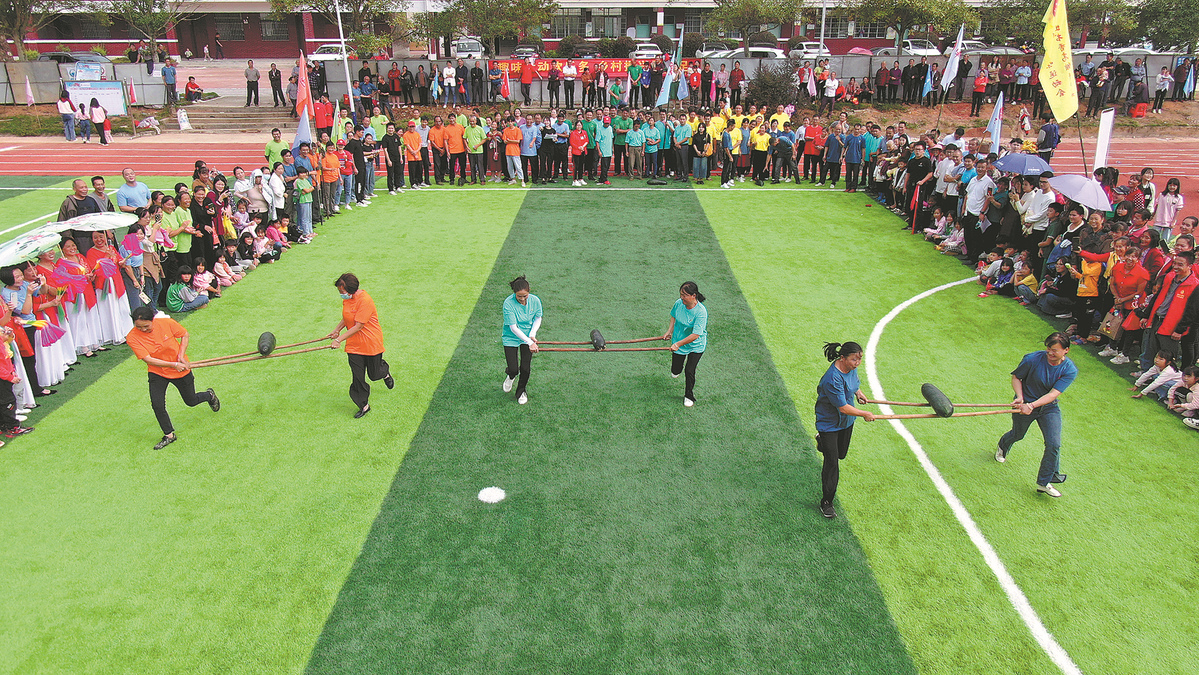County in Jiangxi turns idle rural assets into profitable pastures
Huichang draws on collectives' innovations, modernization push to drive vitalization


Collectives in action
Qixin village in Mazhou town, Huichang, is one good example.
Many of its residents had moved to other cities, which had left over 85 percent of the town's farmland uncultivated, said Ou Ling, the deputy town chief.
Over the past two years, the town encouraged farmers to entrust their land to the village collective economic cooperatives.
The town also established a seedling production center and a comprehensive mechanized agricultural service center to maximize production efficiency of the land.
The seedling production workshop integrates sowing operations, post-sowing management, and farming-related services. Up to 1,000 mu of seedlings can be sowed per day.
Meanwhile, the mechanized agricultural service center reduces production costs through implementing large-scale operations.
"In 2021, the cost of plowing per mu was 160 yuan. Now, it's only 110 yuan. Machine planting costs were 100 yuan per mu last year, but now they are down to 80 yuan. Harvesting costs have also decreased by nearly 20 yuan per mu. According to our calculations, through comprehensive mechanized agricultural services, we can save 90 yuan per mu from planting to harvesting compared with last year," Ou said.
"Our town's total area of early, middle, and late rice cultivation is over 30,000 mu. As a result, the agricultural costs in our town have been reduced by over 2 million yuan," he added.
Farmers are able to conveniently place orders through an intelligent platform to access centralized seedling cultivation, seed planting, land management, and centralized procurement of pesticides and fertilizers.
"Just like urban residents can order a taxi using their smartphones, we also have 'Didi farm machinery'," he said.
Liu Jianqing from Xiabao village said, "My sons and daughters are all working outside, and every year during the busy farming season, I used to spend money hiring assistance on the platform. Now, my fields are all managed properly, and my son can order land cultivation services on the platform, even while working in another province."
Since the introduction of the online service, Liu said he had assumed the role of a "hands-off manager".
Pan said that due to the long-term migration of rural populations to urban areas to work in industrial jobs, there is a labor shortage in rural areas.
"Additionally, rural aging is a serious social issue, with most workers being middle-aged or older, especially those aged 50 and above. Moreover, the efficiency of agricultural production remains low, creating a growing need for agricultural services (in rural areas)," Pan said.
"So we need a modern, centralized system and to utilize scattered farmland to improve agricultural mechanization services, like we have done in Huichang. This will allow even the elderly to use smartphones to order agricultural services while increasing farmers' incomes, " he added.


















